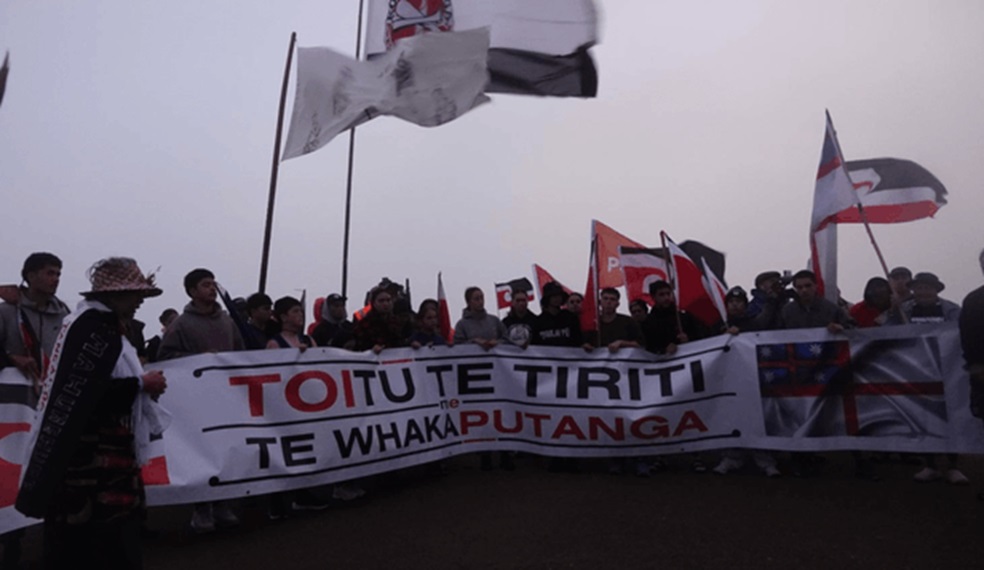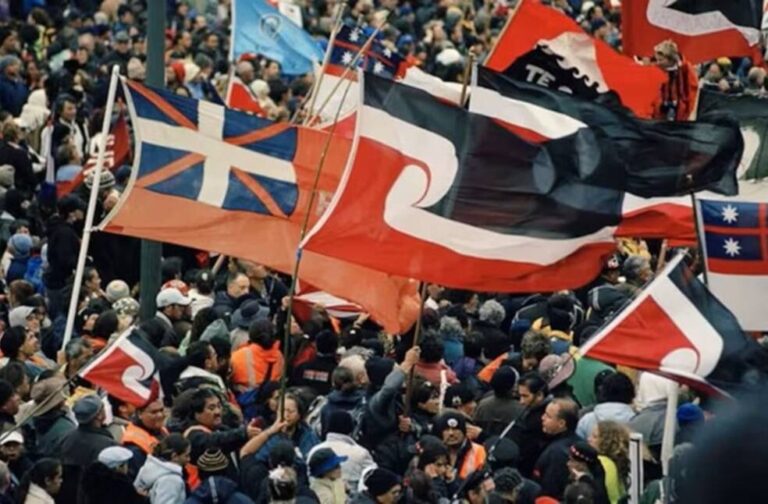Wellington: Hundreds of people began a nine-day march to New Zealand’s capital, Wellington, protesting a controversial piece of legislation that seeks to reinterpret the Treaty of Waitangi, a cornerstone of the country’s race relations.
The march, known as a hikoi, began at Cape Reinga in the far north with a dawn ceremony, before heading south through towns and cities, where marchers will hold rallies along the way. Eru Kapa Kingi, spokesperson for Toitu Te Tiriti, or “Honour the Treaty,” said the protest was sparked by the bill before parliament but aims to foster a broader national conversation about New Zealand’s relationship with its Indigenous Maori population.
“This is to build awareness, not only among Maori but also among all people of Aotearoa (New Zealand), to better understand the history and experiences of Indigenous peoples,” Kingi explained.
The Treaty of Waitangi, signed in 1840 between the British Crown and more than 500 Maori chiefs, established governance principles for the country. The treaty’s interpretation continues to shape policies and legislation today.

The proposed Treaty Principles Bill, introduced last week by New Zealand’s centre-right government, seeks to enshrine a narrower interpretation of the treaty in law, limiting the broader rights and privileges that courts and a separate Maori tribunal have historically extended to Maori people.
Associate Justice Minister David Seymour, who represents the ACT New Zealand party, argued that the bill would ensure that important political and constitutional issues related to the treaty are decided in parliament, rather than through the judicial system.
Though the bill is expected to fail, its introduction has ignited racial tensions in a country where Maori make up about 20 percent of the population of 5.3 million people.
The protest march will hold a major rally in Auckland on Wednesday before continuing its journey to Wellington, where organisers expect tens of thousands to gather for the final demonstration next Tuesday.



